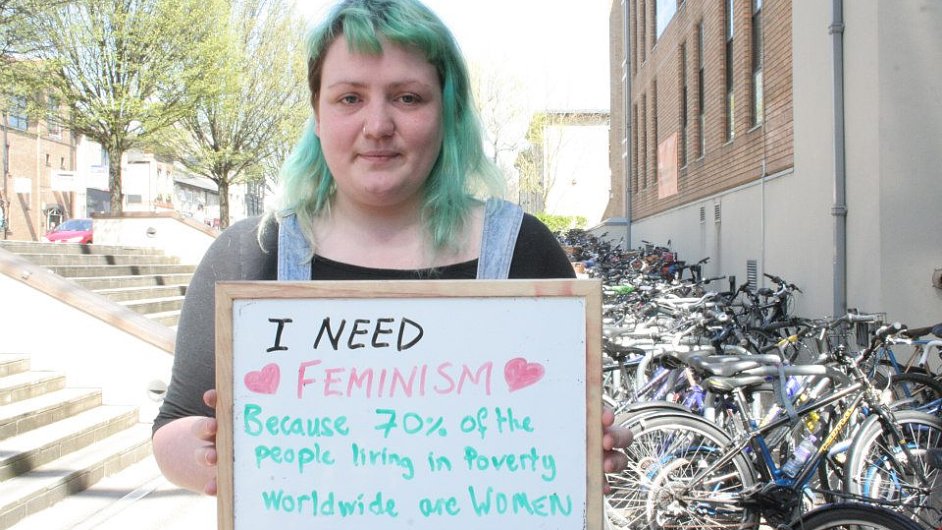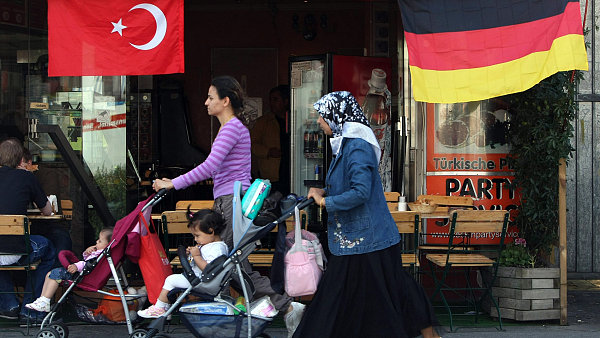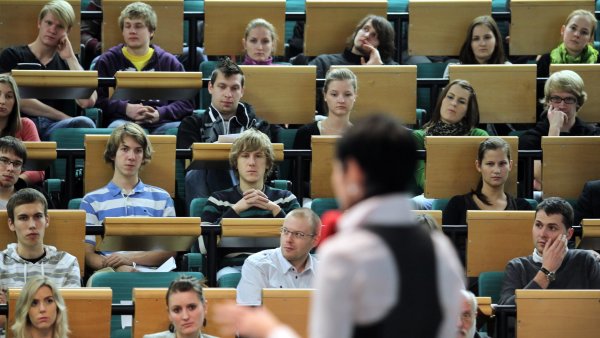Female and male students alike have taken serious interest in the feminism campaign at Cambridge University. Although this is by many deemed to be one of the most elitist institutions in the United Kingdom, and Magdalene College only started accepting women 25 years ago, the students themselves seem to perceive gender relations somewhat differently.
Last year the University's Women's Campaign got involved in the worldwide project “Who Needs Feminism”. Students were photographed standing in the streets holding signs explaining why they specifically need feminism. Take a look at some of the pictures here.
Cambridge Students' Union women's officer for last year, Susy Langsdale, said when interviewed for the Huffington Post: “We decided to do it because we wanted to ensure that the vast numbers of people in Cambridge who felt that feminism was necessary to their life and who fight against sexism everyday were given the opportunity to tell the world why. It speaks for itself really as to why people feel so strongly that feminism is necessary. The response was hugely positive, with the album having been shared over 1/3 million times and people all through Cambridge messaging us to send support.”
And support they gained indeed. The project reached countries as far as Malawi or Australia. Anglia Ruskin University, also located in Cambridge, UK, took part in the project as well. The President of the Feminist Society at ARU Sammi Whitaker said for Cambridge News that the response from the public was much stronger than they had expected.
Students did not only stay at the whiteboard, though. They decided to enter the city's arts scene with feminist issues as well. The productions of Vagina Monologues or For Coloured Girls both showed women's rights issues in a very different light to what many people may think to be an unimportant matter.
However, the issues of violence against women as well as men and women inequality seem to persist. According to a study led by researchers for the Higher Education Careers Services Unit, there exists a “strikingly uneven” distribution of pay between male and female graduates. About seventy per cent of women earned below £23.999 in the UK in 2006, compared to 55.6 per cent of men.
The Cambridge University's Women's Campaign runs many different projects to combat the inequalities. The Women's Campaign also organized protests against Wikileaks founder Julian Assange or French politician Dominique Strauss Kahn when they were supposed to speak the University Union, despite being in legal proceedings for sexual assault charges.
The projects organized by the University's feminists include the Body Positivity Campaign, or the Zero Tolerance to Sexual Harassment Project.
Student movements have made a big difference in the past and perhaps a proactive approach among students towards gender issues can make a big difference in the future.
Bottom line: How do you see the situation in the Czech Republic? Do we need feminism as well or do you think there is a gender equality?






